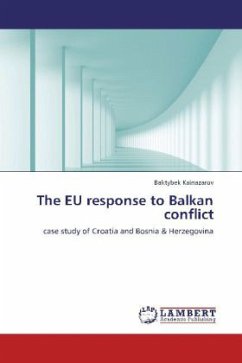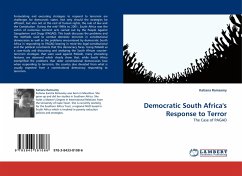With the outbreak of the ethnic cleansing in the Socialist Federal Republic of Yugoslavia, the EU-NATO relations have been in constant evolution. Since the 1990s the EU and NATO have been working together in defining their objectives and goals in the Balkans. However, during the period of 1990-1995, European countries' response for Yugoslavia question was not in regional scope. One of the main reasons is connected with the multiple interests in the EU member countries. Therefore, this research includes inter-state bargaining on the security issues of the EU member countries in the post conflict Balkan region. Analysis of peace agreements including Dayton Peace Agreement, Berlin Plus arrangement and other EU involved actions will illustrate the multiple interests and intergovernmentalistic track on the EU security policy.
Bitte wählen Sie Ihr Anliegen aus.
Rechnungen
Retourenschein anfordern
Bestellstatus
Storno








